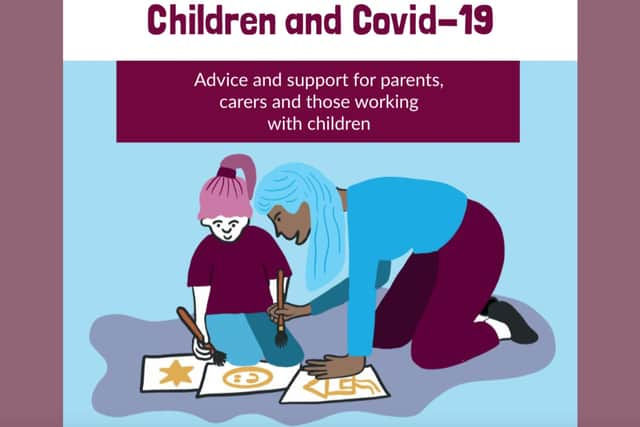Sheffield Hallam University helps create specialist learning resources to support children and families during coronavirus
and live on Freeview channel 276
Academics at the Sheffield Hallam-led social mobility partnership, South Yorkshire Futures, joined Trauma Informed Schools UK (TISUK) and Nifty Fox Creative to develop the resources which have been distributed to schools and parents across the region.
They focus on how to talk to children about the current crisis, the importance of play and how this can help children and young people to open up about their feelings.


Advertisement
Hide AdAdvertisement
Hide AdThere is also guidance for educational settings on how they can help staff who are working to support the children of key workers.
Sally Pearse, strategic lead for early years at South Yorkshire Futures, said: “People tend to think of trauma as a significant event like a car accident but in fact trauma is the response to any event that frightens us or makes us feel that our life is out of control and when we are not supported to cope with this.
“Many adults will be experiencing this pandemic as traumatic, particularly where we have no-one available to help us make sense of what has happened. On top of this people will also be trying to support their children who have lost their familiar structures and routines and may have lost their sense of the world as a safe place.”
Trainee teachers at Sheffield Hallam receive input on trauma-informed practice to ensure schools are mentally healthy places.
Advertisement
Hide AdAdvertisement
Hide AdJulie Harmieson, co-director TISUK, explained how children’s fear can manifest itself in many ways including nightmares and change in appetite.
She added: “One of the most important things to do to support children at this uncertain and ever-changing time is contain their emotions by being steady for them.
“Structure is important, and routines certainly help to maintain a sense of normality, but there is powerful evidence of the buffering impact of play. It increases the sense of emotional connection and safety, reduces stress hormones and is a wonderful opportunity to talk about a child’s worries at the same time.”
Sheffield Hallam recently hosted a virtual conference with around 400 experts in education and leaders from children’s charities and support organisations in attendance.